The Points of View 2018 cohort!
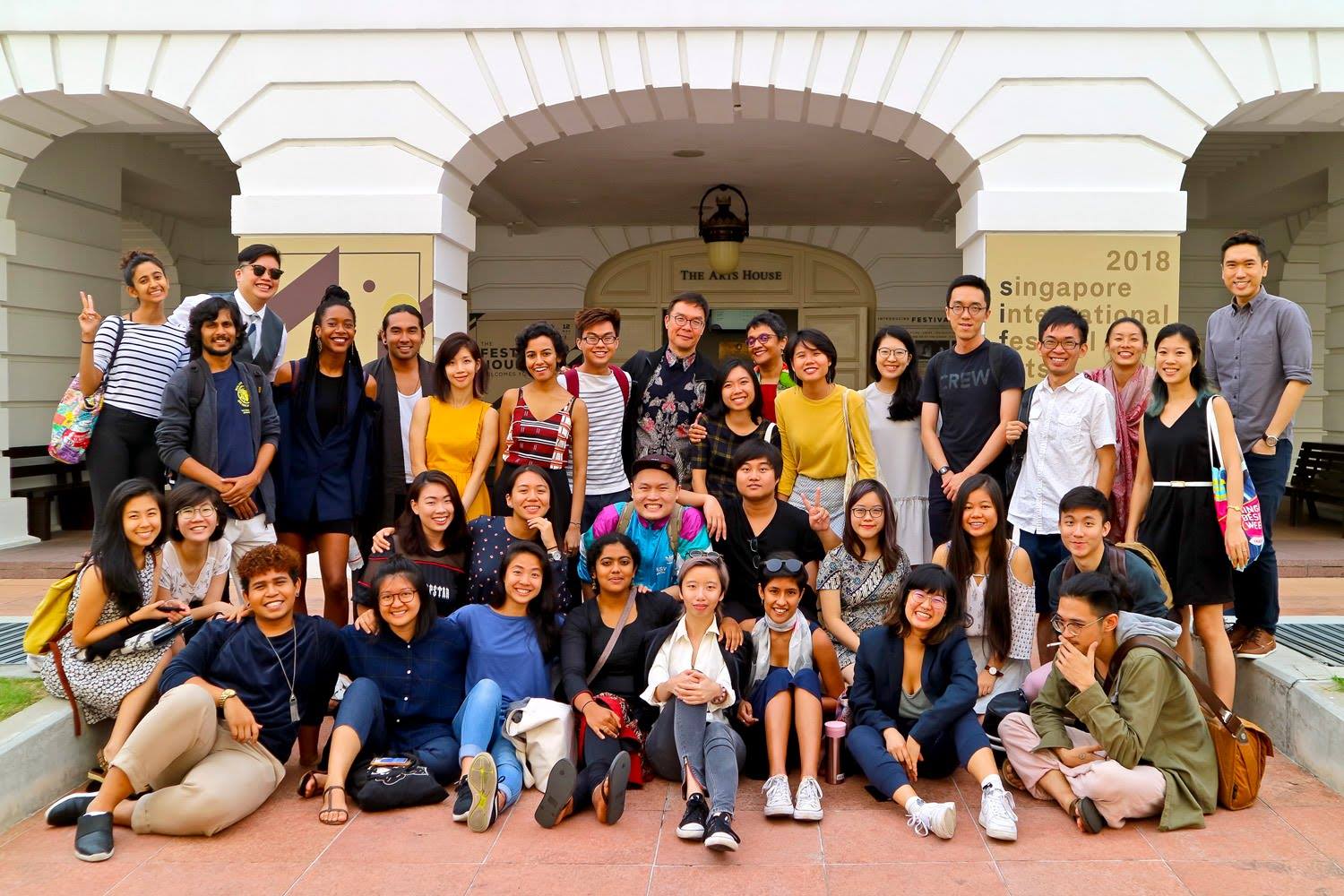
Day 9 Activities:
- POV Public Forum
- SIFA Performance: Nico Muhly Speaks Volume
All good things must come to an end. The participants of Points of View 2018 came together for the final day of the programme on 12 May, where they shared their experience and presented their findings in a forum that was also attended by members of the public.
In the opening address, Lim How Ngean began by giving an introduction to how the Asian Dramaturgs’ Network (ADN) and POV came about, and Jobina Tan, the head of programming at The Arts House, followed by framing the POV programme within the wider context of what SIFA 2018 hoped to do: to complement the performances with discourse.
Charlene Rajendran then briefly described how the programme was structured and facilitated, before handing the floor over to five POV group representatives - Irfan Kasban, Loh Anlin, Tan Liting, Shanice Nicole Stanislaus, and Desmond Soh - who outlined some of the topics that they had been discussing with their fellow participants in the last two days. These ranged from the notion of the festival and the programme as a place to gather and talk, to the question of what it means to be a performance writer and maker in Singapore today.
The public was then invited to join any of the five groups to further the conversation, which carried on in various spaces around Festival House. Below are the accounts of what each group discussed during the 30 short minutes that they had together with their new friends, written by the five representatives.
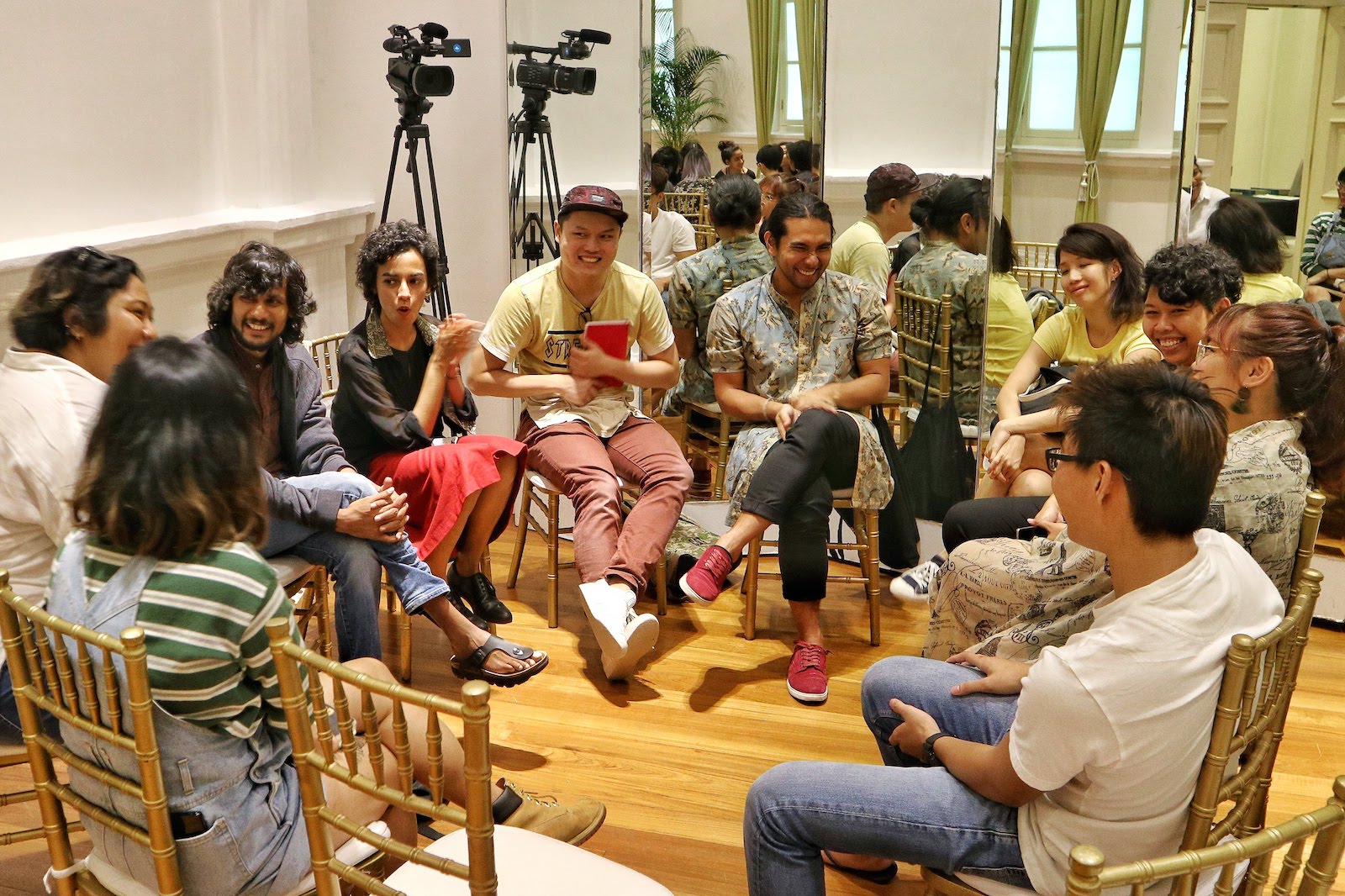
Irfan Kasban's group shared their POV journey with members of the public.
"Our group focused on the idea of a festival being a place of ‘gathering’ – having a shared experience in a specific space and time. We started with introductions and the shows that we caught or resonated with in SIFA, never limiting the conversation to just the POV programme as we wanted to demonstrate how our dialogues occurred in the last nine days, instead of describing them.
"The ‘public participants’ were naturally curious and guided the conversation to whether SIFA has succeeded in living up to its namesake. From then on there were no clear distinctions between POV and public participants, as we allowed the conversation to organically unfold, chiming in to shed our perspectives.
"Looking at the festival director’s promise of ‘there is something for everyone’, points of discussion include ticket prices, regional work, theatre size/venue, content, curation, and supplementary programmes (i.e. dialogues with artist), amongst many other terms of engagement. During the conversation we briefly also mentioned how difficult it is for a curator to be neutral or impartial in selecting works, as individual taste comes to play. Taste which is guided by experience, prejudices, and instincts, differs from one individual to the next.
"The conversation ended with an awareness – of how a work(/festival) is perceived in a myriad of ways, which is essentially reliant on many factors including our own biases, and terms of engagement. We closed the forum by thanking everyone for being part of the gathering."
Group members: Akanksha Raja, Casidhe Ng, Dominic Nah, Gabbi Wenyi Ayane, Lakshmana KP, and Valerie Lim
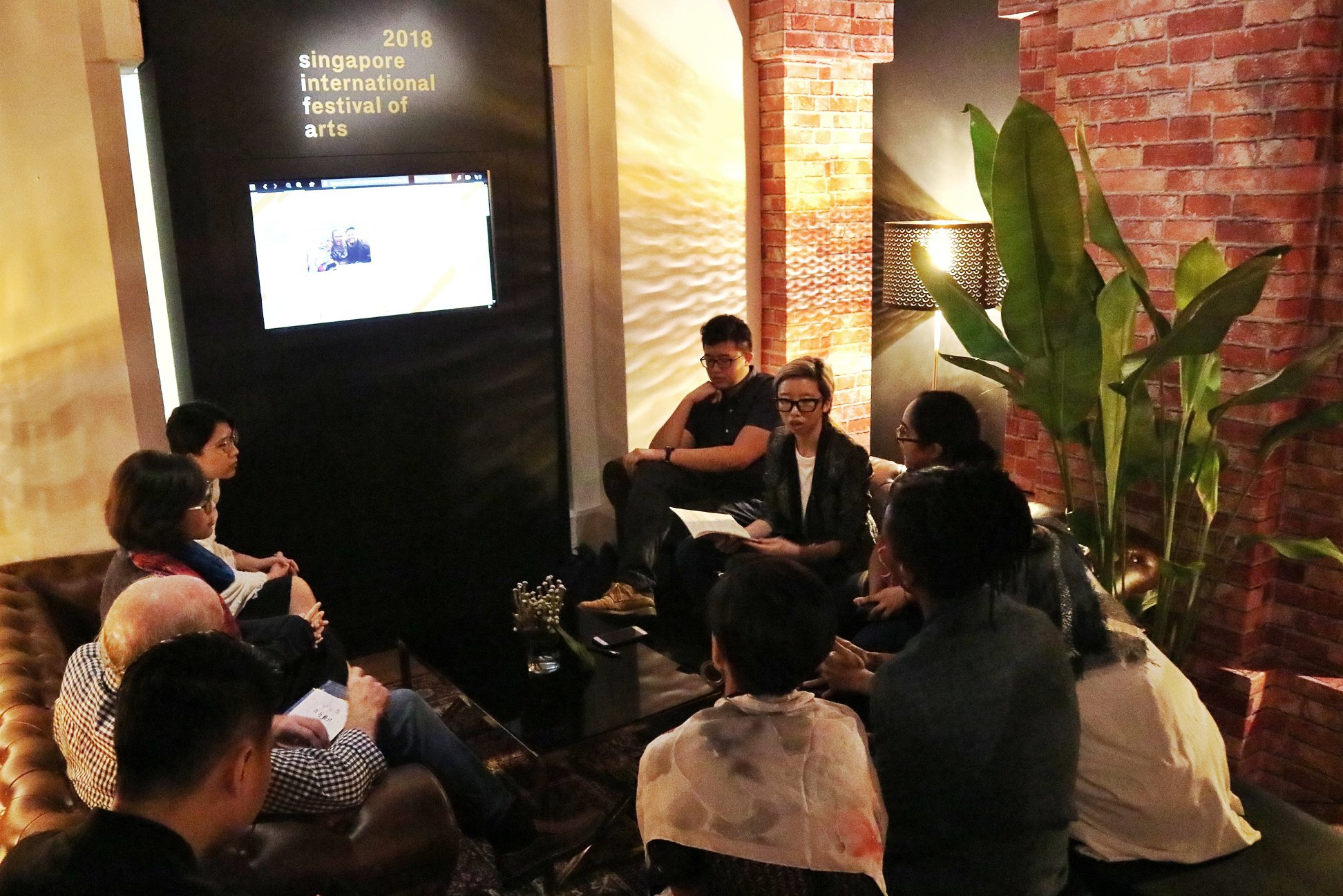
Loh Anlin's group discussed the positioning of local versus international works in different contexts.
“The greatest gift we’ve received in the last two days of POV was to have an open space to discuss the controversial, the awkward, and the personal with our fellow participants, all in good faith and with utmost generosity.
“With merely 30 minutes to create that same environment with our new team members in the public forum, we decided to jump straight into the deep end. One group member began by sharing how she felt there was an uncomfortable hierarchy and stratification of the local versus the international here in Singapore. It was a difficult subject to be thrown into. Nonetheless, both our team and our guests managed to share, in good faith, our genuine perceptions. We discussed how Singaporean works tend to be presented overseas versus within a local frame, and, conversely, how international works are sometimes brought into Singapore to represent only a part of their country or city of origin. Some of our guests then gave us some insight into the kinds of decisions, including budgeting, that go into programming a festival, and how those decisions may affect how the works are perceived.
“By the end of the 30 minutes, we were left with a better understanding of each other and a desire to continue the conversation, because that free exchange of ideas really only just started.”
Group members: Chong Gua Khee, Ethan Chia, Iwani Zoe Mawocha, Lim Si Qi, and Shristy Das Roy
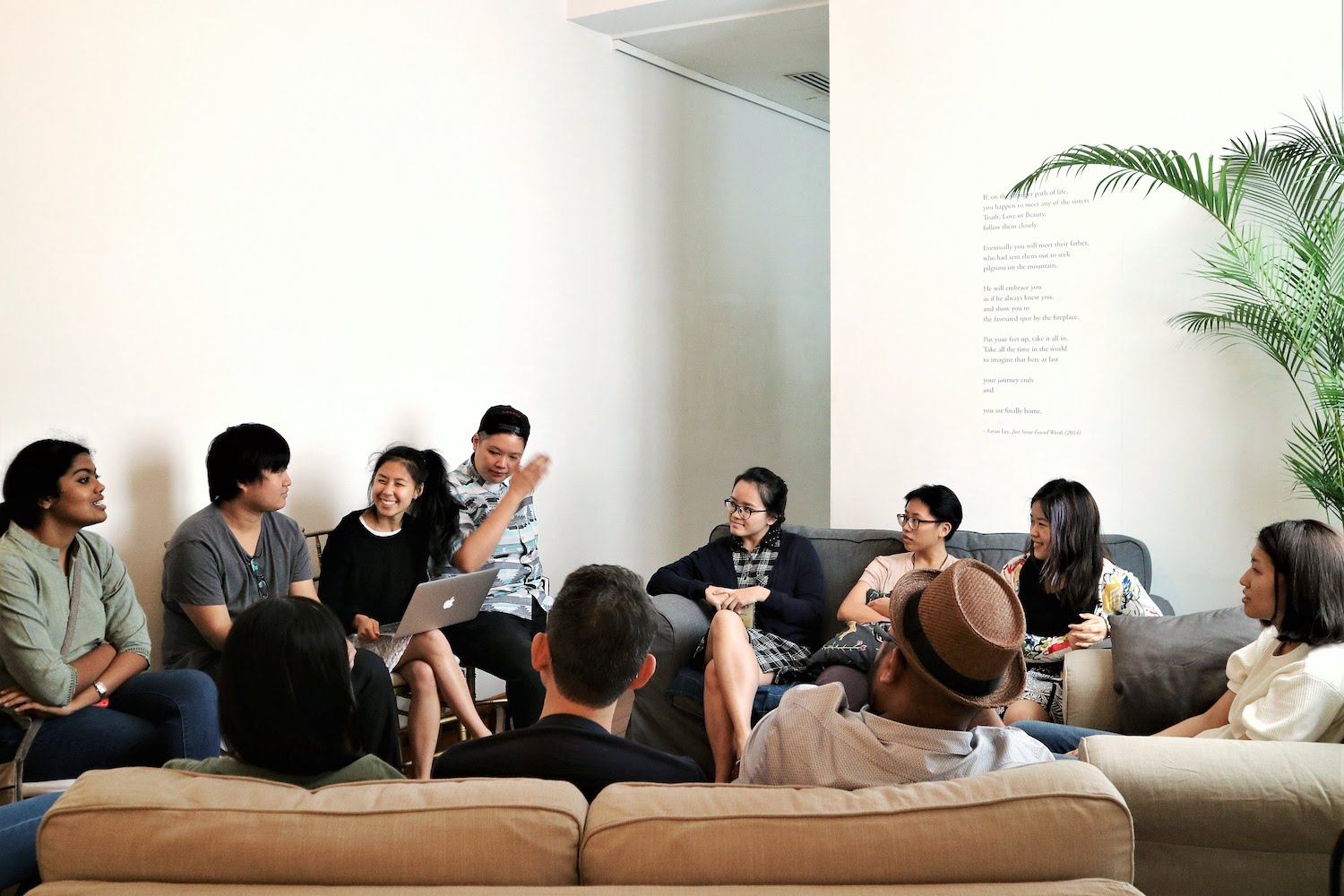
Tan Liting's group talked about how to form a diverse, inclusive community within the arts.
“In reflecting the past nine days of POV, my group talked about the community that it had built up. The programme allowed for more personal and practical discussion, and also encouraged time for listening. This led to more clarity of thought, which then led to a more nuanced understanding of other points of view outside of our own, ranging from the academic to our personal experience. It gave us a better understanding of the surrounding structures in performance, and has allowed my group members to consider these circumstances both in making and writing about performance.
“This in turn led to a discussion about action. We asked ourselves about the structures that allowed us all to gather to have these conversation, and we were concerned with whose voices were missing in our little echo chamber. What actions could we take to reach out and invite other points of view? So the questions we wanted to ask at the forum were these: How do we create safe spaces for people who are keen to speak and keen to learn? And how do we encourage a conversation that takes into account diverse points of view, and allows for an unpacking of the larger issues at hand?
“The group discussion did not come to a conclusion given the time frame, but one thing that was clear is the need to give ourselves and each other time and space. This is not merely in the physical sense, but also in terms of creating room for overcoming language and cultural barriers and having the patience to negotiate these structures. That forms the ‘contract’ of having conversation, which will eventually pave the way for more voices to be heard.”
Group members: Amanda Leong, Alfonse Chiu, Nathaniel Tan, Pooja Mohanraj, and Victoria Chen
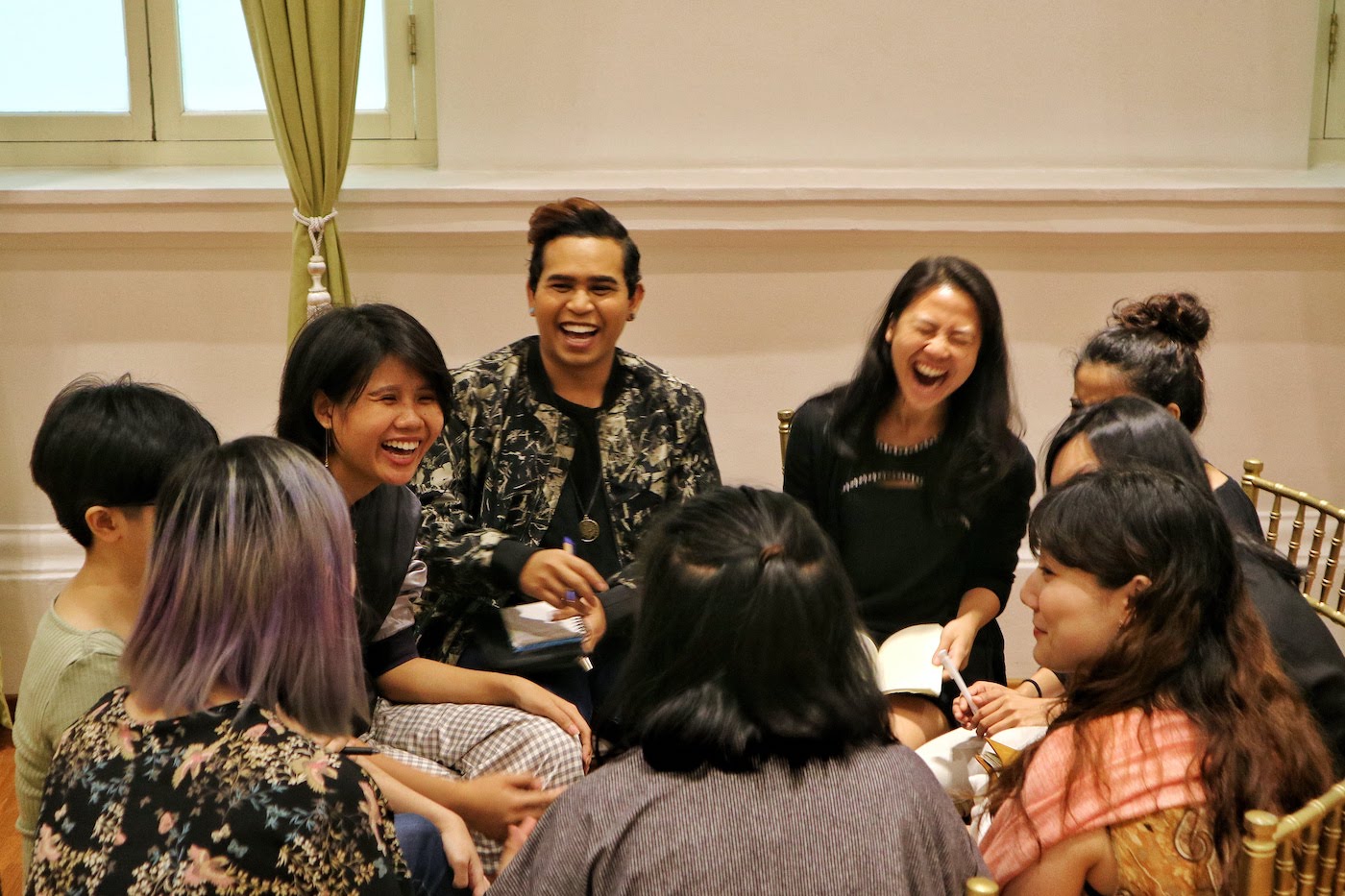
Shanice Nicole Stanislaus's group discussed why they do what they do as artists.
“We shared how the POV programme and our critical dialogues have made us think more precisely about why we as practitioners make work, and question why we do what we do in terms of engaging with art. We got to discover for ourselves the kind stories we want to tell, and the choices we want to make on how we want to tell those stories. Through these dialogues, the artists we met have reaffirmed the answers to those questions through the sharings of their own experiences and philosophies.
“Community was an important aspect of our discoveries in terms of locating ourselves within the artistic ecosystem in Singapore. It was heartening to learn from the group discussions how each individual benefitted from having a community to work alongside, in order to inspire their own work. We also discussed what kind of industry we want to create and what our responsibilities are as practitioners. Most of the individuals shared what a festival meant to us, and how we can better engage with festivals as well.”
Group members: Jaclyn Chong, Ng Sze Min, Sabrina Sng, Teo Xiao Ting, Zac Denver Lee
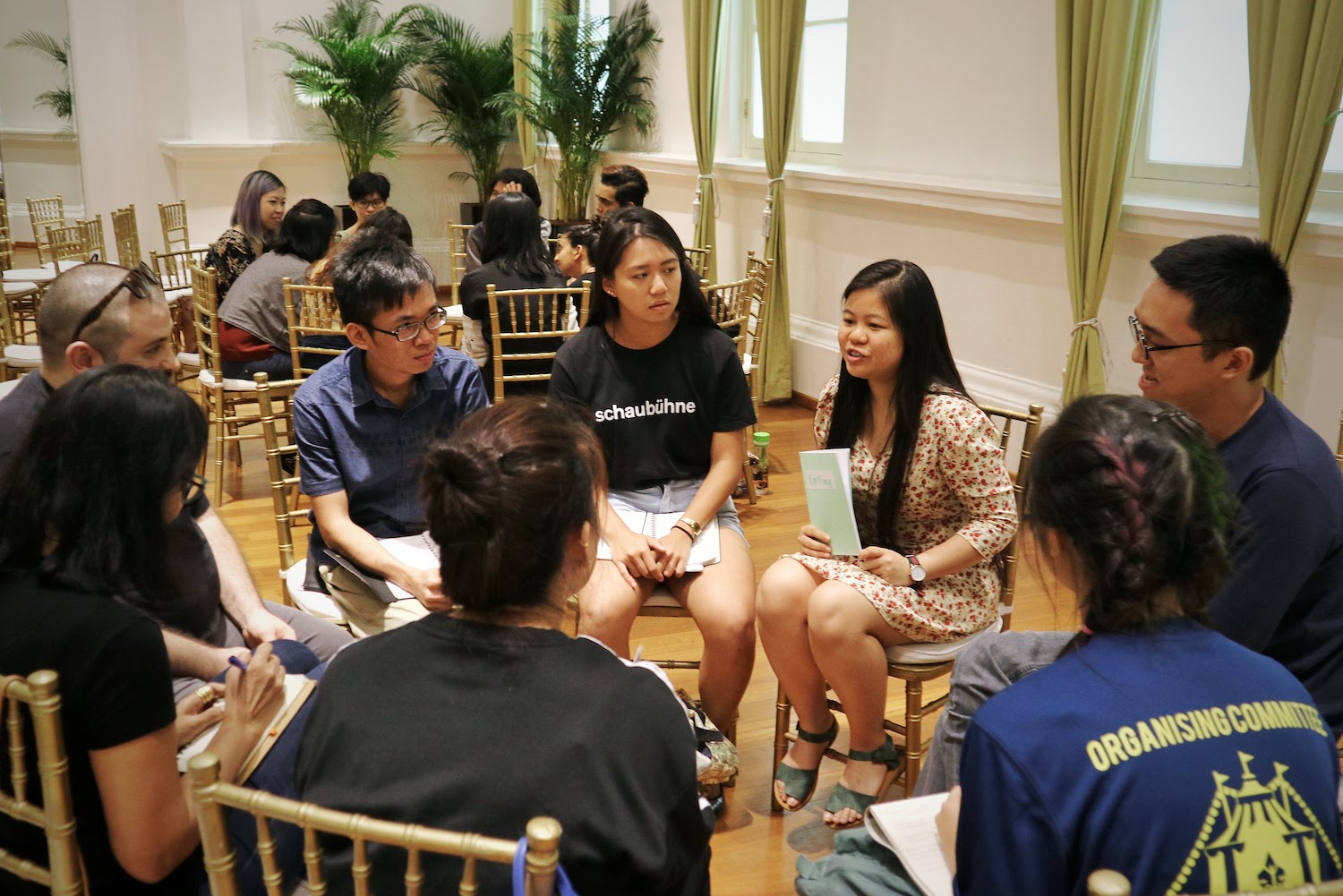
Desmond Soh's group considered how to develop a voice for both artists and festivals.
“With the various topical reflections on the POV programme, one key idea that had emerged was the development of a voice. We drew particular attention to the difference between an opinion and a voice, and how the POV programme provided conditions that allowed this development to happen. A sense of openness, coupled with the rigour and faith contributed by the participants, sharpened the thinking and questioning processes without reducing the diversities of thought. The back-to-back nature of the SIFA performance schedule augmented the depth of issues discussed, although there were also talks of how breathing spaces could have helped the experience, to prevent fatigue from settling in.
“Questions of ownership, sustainability, and the continued search for a voice were raised in the group discussion with public members, by looking at SIFA through a broader lens. We explored and considered the ways that SIFA can develop as a festival in itself, not just by curatorial choices but by curatorial processes. For instance, there were questions related to the power and limitations of a single artistic director. Further explored were questions of how SIFA stands in a larger landscape in the world. The notion of ‘cultural diplomacy’ as a function of festivals was brought up by a member of the public, which we then considered alongside issues of accessibility and cultural development. Perhaps, SIFA as a national-level festival has and will continue to deal with considerations that are very pronounced, which we link back to the earlier idea of a ‘voice’. Relational, ever-challenged and influenced, the ‘voice’ of both the artists and the festival can hopefully be developed through continued dialogue.”
Group members: Cara Ann Lee, Chia Xin Ying, Ke Weiliang, and Shannen Tan
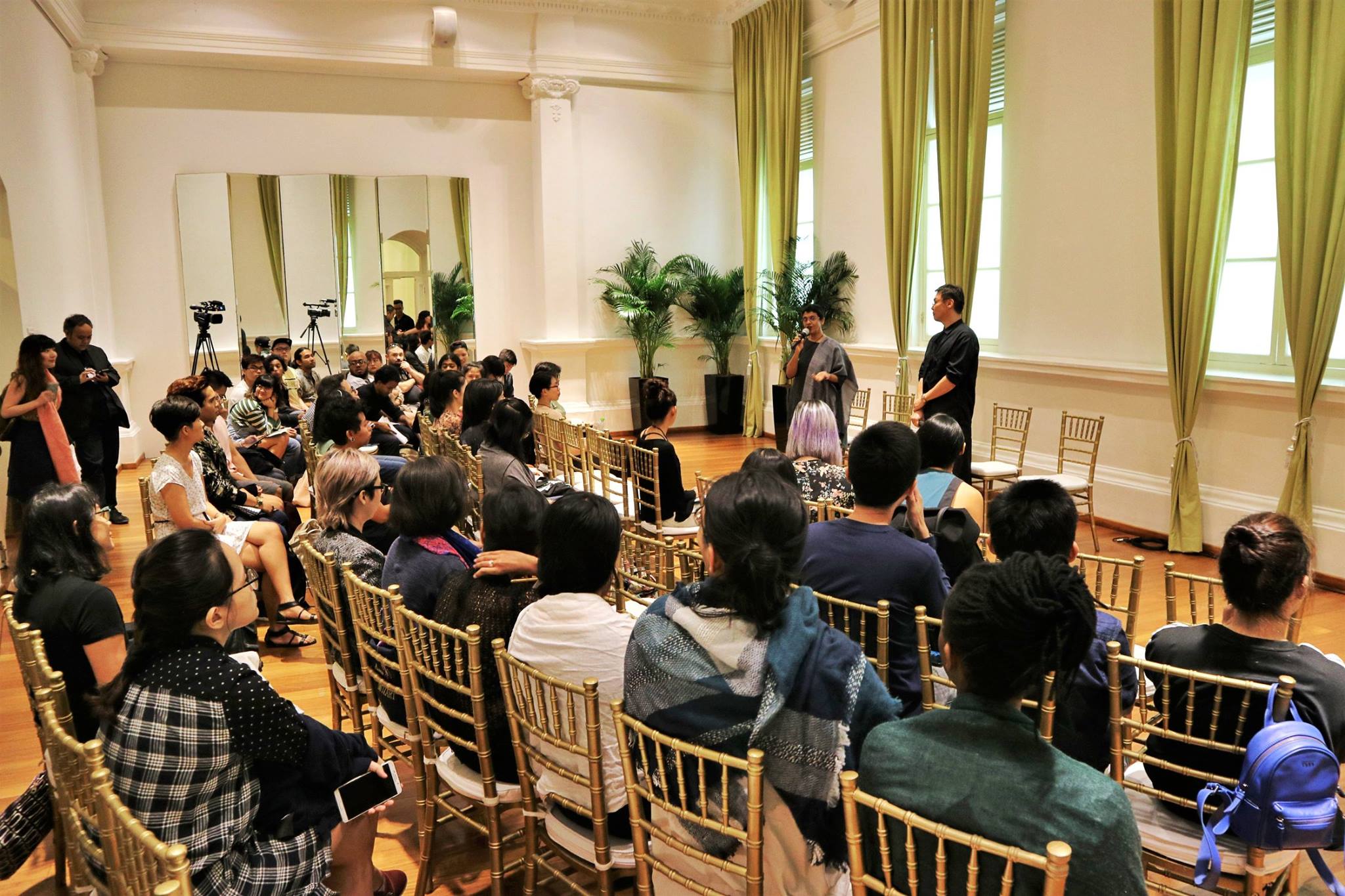
POV's co-facilitators Charlene Rajendran and Lim How Ngean addressed participants and members of the public in the POV Public Forum.
At the end of the 30 minutes, everyone congregated back in the Festival House Living Room for one last time to share their final thoughts. The closing address was first delivered by Centre 42’s company manager, Ma Yanling, who shared upcoming events and platforms that both Centre 42 and other communities in our ecosystem are involved in, for participants to continue their artistic development and dialogue. Jobina Tan then concluded the session by saying that: “We can leave [this room] knowing that there’s more to look forward to, that the conversation should never stop, and we should always connect and listen to each other.”
After the Public Forum, the POV participants then headed to SOTA Drama Theatre to watch Nico Muhly Speaks Volumes, a concert by the American contemporary classical composer.
The performance marked the end of this year’s SIFA, and also the end of POV 2018. But even though it’s farewell for now, we’re heartened to see that a community has been built here over the last nine days. We hope that this is only the beginning, and that the dialogue will continue from here for our performance writers, makers, and everyone else within the arts ecosystem.
Published: 15 May 2018